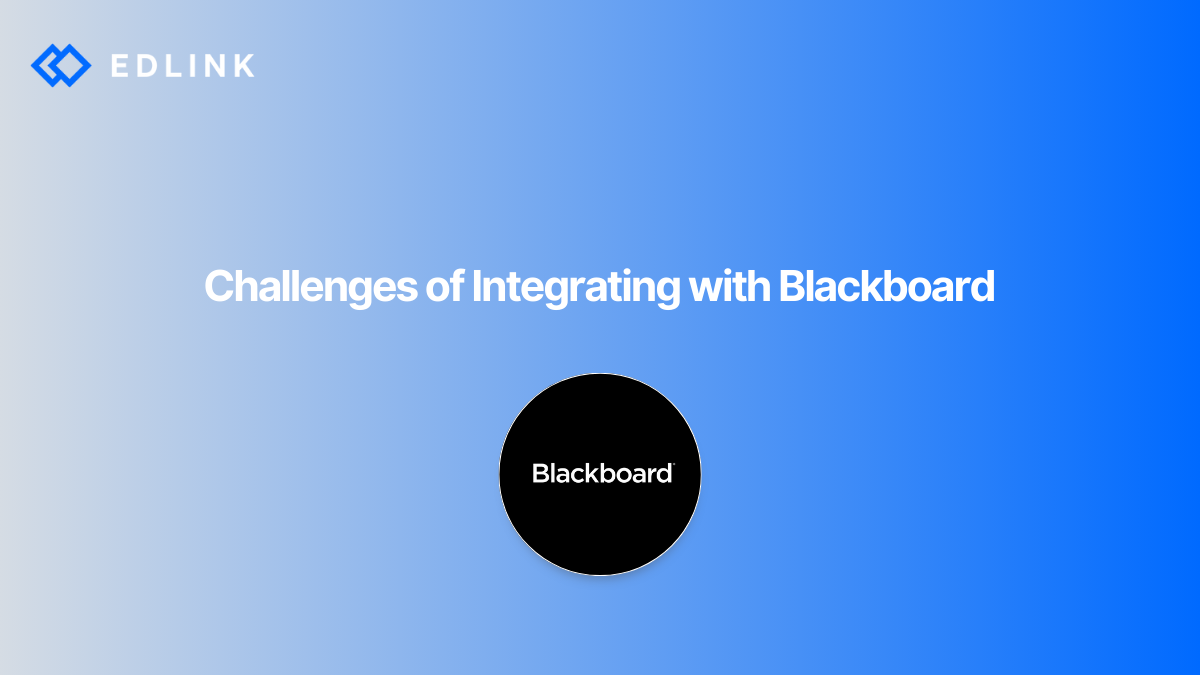Blackboard supports integration through its APIs and through the LTI® standard (including LTI 1.3 and LTI Advantage). In this article, we'll cover some of the quirks of Blackboard integration and how it can be surprisingly challenging.
Costs of Blackboard Testing Environments
In order to get started with the Blackboard REST API, developers have to register for a Blackboard developer account. It is free to register for an account but there may be costs associated with deploying your integration once you reach a certain scale. For example, developers must pay Blackboard to set up their own development instance. This environment, which developers also have to set up themselves, lasts for three months at a time.
Non-Standard OAuth 2.0
Like many other LMS’s, Blackboard uses OAuth 2.0 to authenticate users who are signing into an API-integrated third-party application with their Blackboard account. However, Blackboard's implementation of OAuth 2 is somewhat non-standard. While it still technically follows the OAuth 2 specification, Blackboard's implementation has quirks that aren't generally present in other platforms that use OAuth 2.
Self-Hosted Blackboard Environments
Note that Blackboard instances are usually self-hosted by the school or college. Due to the many legacy systems hosting the software, Blackboard environments tend not to be updated as frequently as other platforms. This can be a problem when integrating with Blackboard, as your app may try to interact with a feature that is not present in a particular school's Blackboard environment.
These three challenges are just a subset of some of the issues you could run into while integrating with Blackboard. LMS integrations are usually not as straight-forward as they might seem at first. You should take into account the differences and quirks of integrating with each platform when you're building out your own integrations.
Read More on Blackboard:
Read these other articles we've written on Blackboard and integrations.
- API vs. LTI Integration for Blackboard
- How to Implement Single Sign-On with Blackboard
- How to Use the Blackboard API
- What are API Integrations for LMSs
- What is “LTI Integration”?
Learn More about Edlink
If you're looking for a partner to guide you through developing Google Classroom integrations, then let us introduce ourselves. We're Edlink!

